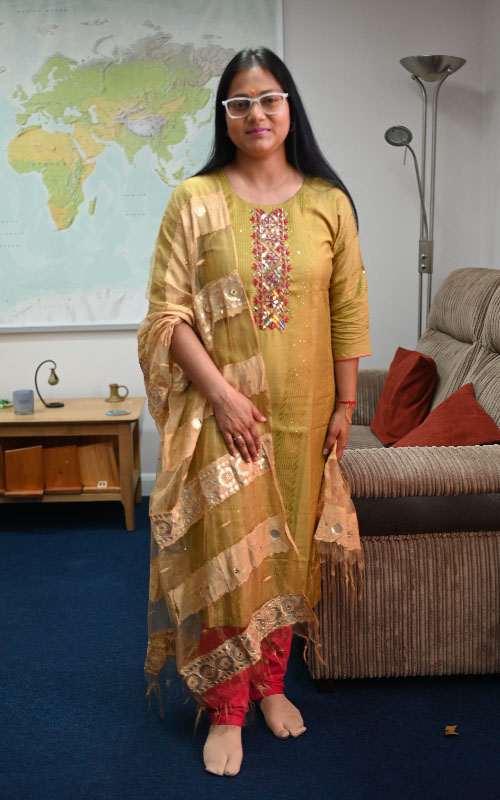Diwali explained by International student Vanjyotsna

With Diwali around the corner, we revisit an interview with International MBA student, Vanjyotsna Grover, from Delhi, India, discussing the significance of this festival in the Hindu culture.
What festivals are traditionally celebrated in the Hindu culture?
Indian culture is very vibrant and colourful. It is home to a total of 121 languages and 270 mother tongues. Different communities throughout the country celebrate and share their different language, rituals, prayers, food, clothes, dance forms, etc. Moreover, the main festivals of India are Holi, Diwali, Navratri & Dusshera, Eid, Onam, Sankranthi, Ganpati Sthapna, Durga Puja, Janmashtami etc.
With Diwali, which is one of the most important festivals of India, every region in India has distinctive traditions for commemorating this festival, but whatever the customs, there is agreement that Diwali represents the triumph of good over evil, light over darkness and wisdom over ignorance.
How is Diwali typically celebrated?
On Diwali night, most people offer prayers to Lakshmi, the goddess of wealth, and Ganesh, the god representing good fortune and wisdom for the coming year.
The weeks leading up to Diwali are traditionally a time for redecorating the home, buying new clothes and jewellery, and exchanging gifts such as sweetmeats, dried fruits and nuts. This is the season for dinner parties, outdoor food festivals and craft fairs, all of which help build up excitement ahead of the main Diwali celebration.
Expect drinks and plenty of finger food at these parties, which will usually include platters of kebabs, fried savoury snacks, tandoori grills and spiced sweetmeats (mithai).
Savoury snacks could include samosas, bhajis, aloo tikki (griddle-cooked potato patties) and channa bhatura (spiced chickpeas and puffed bread). Gujarat in west India is famed for its crunchy snacks, known as ‘farssan’.
Diwali is not just significant to people of the Hindu faith. Can you tell us a bit about meaning across different cultures?
For Hindus, this is linked to the ancient legend of Lord Rama, who was deprived of his kingdom and sent into exile for 14 years. Diwali celebrates Rama’s eventual defeat of the evil spirit Ravana, and his triumphant return to his home.
For Jains, it is a time to celebrate Lord Mahavira, the founder of Jainism, and the moment reached a state of enlightenment.
For Sikhs, the celebration highlights the release of guru Hargobind Singh from prison and his return to Amritsar.
That’s how celebrations of Diwali occur with the common message between Hindi and Sikh that is to Win over Evil.
If you weren’t at University, how would you be celebrating with your family and friends?
I personally celebrate the Diwali festival with my family and friends. I decorate my home with raingoli, diyas (light lamps), candles lighting the home, and other such decorations and accessories; and I wear traditional colourful clothes like Lehenga Choli, Saree, Suits etc.
We prepare special Indian food and sweets at home like Gulab Jamun, Chole Bhature, Dal Makhni and Rice, Kheer, etc. and invite friends and family to our homes for dinner and fireworks.
For more information please contact the Corporate Communications Team.


/prod01/wlvacuk/media/departments/digital-content-and-communications/images-2024/Diane-Spencer-(Teaser-image).jpg)
/prod01/wlvacuk/media/departments/digital-content-and-communications/images-18-19/220325-Engineers_teach_thumbail.jpg)
/prod01/wlvacuk/media/departments/digital-content-and-communications/images-2024/241024-Dr-Christopher-Stone-Resized.jpg)
/prod01/wlvacuk/media/departments/digital-content-and-communications/images-2024/UoW-City-Campus-(Teaser-Image).jpg)
/prod01/wlvacuk/media/departments/digital-content-and-communications/images-2024/241014-Cyber4ME-Project-Resized.jpg)
/prod01/wlvacuk/media/departments/digital-content-and-communications/images-2024/240315-Research-Resized.jpg)